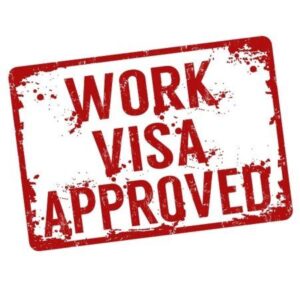The hospitality industry uses a wide range of visas to bring workers to the United States from other countries. Immigrants often keep the hospitality industry going and hotels would find it difficult to recruit porters and maids without a steady supply of foreign workers.
Restaurants, hotels, and other visitor attractions are most likely to use J-1, H-1B, H-3, H-2B, E-2, TN and L-1 visas.
The type of visa you apply for depends on the position the worker you want to hire will be occupying and his or her qualifications.

The hospitality industry uses many types of work visa
J-1 Visas for Students
Workers in the hospitality industry may apply for J-1 visas under the Exchange Visitor Program.
There are 14 different work and study-based programs. The time you are allowed to stay ranges from six months to as long as five years for university professors.
Generally, the hospitality industry is more likely to take on students for short periods to fill roles such as camp counsellors or tour guides.
There is a category for interns who recently graduated and have less than one year of experience. Interns may come to the United States for a year to train in a hotel or at a restaurant.
H-1B Visas
If the hospitality industry is looking for highly skilled workers such as fashion models or people with bachelor’s degrees in marketing or hospitality management, an application may be made for an H-1B visa. However, these visas are more commonly associated with the technology sector. Only 65,000 are made available each year and the cap is quickly reached as we describe here. The employer must petition for a visa for the employee.
H-2B Seasonal Visas
The hospitality industry in Texas and elsewhere makes use of H-2B seasonal visas for non-agricultural temporary workers from abroad. These visas are often associated with big events or construction projects. For instance, a company may apply for H-2B visas for a major event that it needs large numbers of catering or waiting staff for.
Although H-2B visas are limited to seasonal workers, they are highly sought after and there is usually more demand than visas available for workers. It can be a difficult process to apply for these visas as we describe here on our website.
L Visas
The L visa is often the most suitable visa for managers of hospitality workers of chain hotels or restaurants. It is flexible in that it allows managers to be transferred across locations. These are the best kinds of visas for hospitality workers in large restaurants or hotel chains, or smaller establishments that seek to establish more outlets across the United States.
H 3 Visas
The H-3 visa is a trainee visa available for a period of up to two years. It’s a useful option to consider if you are in the United States on a J-1 visa and want an extension to keep working in the hospitality industry. The employer must prove that the training the foreign worker is being given in the United States is not available in his or her home country.
TN Visas
The TN visa is only available for Mexican and Canadian hospitality workers coming to the United States to work in positions in the hospitality industry. It’s part of the North America Free Trade Agreement (NAFTA). A college degree or five years’ experience in management is required. It’s a great option for workers who see their career in management.
If you wish to work in the hospitality industry in the United States or are an employer, you are likely to face a headache knowing which visa to apply for. Our Texas immigration lawyers can help you. Contact us now for a consultation.

